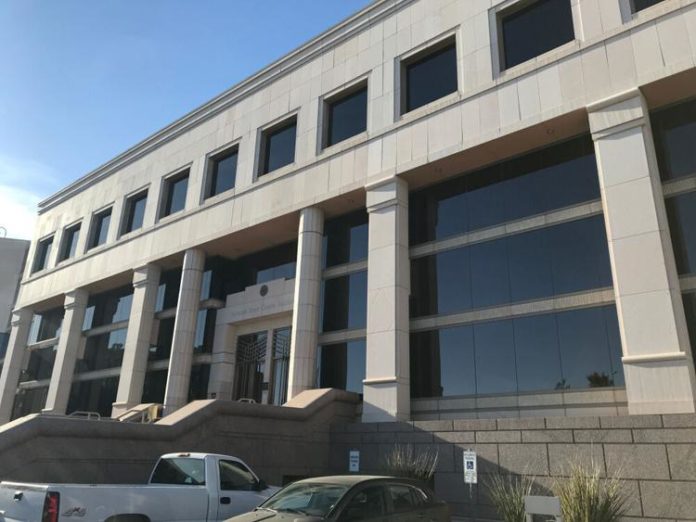The state Supreme Court on Thursday appeared conflicted over whether Arizona Attorney General Mark Brnovich’s lawsuit challenging a deal between Arizona State University and a hotel developer should be revived.
Justices sharply questioned both sides on Thursday but gave no indication of how they might rule. Brnovich wants the court to overturn lower court decisions that said he did not have the right to sue over the deal. He said the agreement that allows the hotel now being built on land owned by the Board of Regents to avoid paying property taxes is a sham agreement.
But Justice Bill Montgomery questioned the premise, saying state law explicitly allows the board that oversees the state’s three public universities to lease tax-exempt land it owns. In this case, that allows it to collect rent payments and the Omni Hotel to retain the tax exemption during the 60-year lease term.
Montgomery said the transaction “would seem to fall within the four squares of what the board is allowed to do.”
Brian Bergin, a private attorney who argued the case for Brnovich, said that would only be true if the deal met other conditions.
“One of the conditions is that the transaction must be for the benefit of the state,” Bergin told the justices. “And the second condition is that it also must be for the use of the institutions under its jurisdiction.”
The private hotel meets neither condition, he contends. He also argued that the board wasn’t acting as the state but as a political subdivision, which does not qualify for the same exemption.
But attorney Joel Nomkin, representing the Board of Regents, said the court would need to overturn decades of precedent to conclude that property owned by the Regents was taxable. And he noted that because the land is now and will remain tax-exempt, Brnovich can’t sue for tax evasion.
“There has never been a case in Arizona history that has viewed the Board of Regents as anything other than the state for purposes of property tax exemption,” Nomkin told the court. “So I think you would be making a rather dramatic shift to say that the board somehow isn’t the state for this purpose.”
He said the Regents retaining title to the land is all that matters to keep the tax status.
The Regents say the transaction is a good deal for taxpayers because the hotel will pay more than $100 million in rent over 60 years and the university will benefit from the construction of a hotel and conference center that it needs.
The two attorneys also sparred over whether a claim that Brnovich added months after he initially filed the lawsuit was filed too late. In that claim, he alleged the deal violated the state constitution’s gift clause, which requires public bodies to get fair value for property. Lower courts said he waited too long to sue and it was barred by the statute of limitations.
The justices were asked to revive the lawsuit after lower courts dismissed three of its claims and said Brnovich waited too long to file the gift clause action. After sharply questioning both lawyers, they took the case under advisement and will issue a ruling later.
The Arizona Tax Court ruled that because ASU owns the land and will own the hotel and university property it isn’t subject to taxation. The Arizona Court of Appeals upheld the decision.
The Republican attorney general, who is running for U.S. Senate, wants ASU’s deal with the hotel developer voided. He said the Regents exceeded their power to enter into leases for public purposes and argued they improperly exempted the hotel and an adjacent conference center from property taxes.
ASU plans to pay nearly $20 million of the conference center’s construction costs. They also will build an adjacent parking garage funded with $42 million in newly issued bonds it will pay off using parking fees and some of the hotel’s $1.1 million in annual lease payments. The hotel will have access to about 20% of the parking spaces.
The Court of Appeals decision ordered Brnovich’s office to reimburse the Board of Regents for nearly $1 million in attorney fees and other legal costs.
Republished with the permission of the Associated Press.














